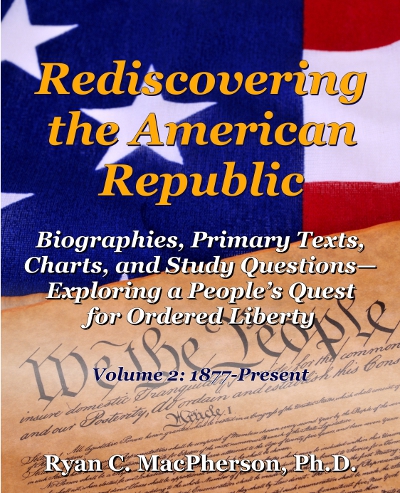 Back in the days when churches were permitted to sing aloud, Johann Sebastian Bach composed a cantata to mark the “election” (we might say “appointment”) of a town council, entitled “Preise, Jerusalem, den Herrn” (“Praise the Lord, O Jerusalem,” BWV 119). As a church musician, Bach keenly appreciated the instructional value of both the lyrics and the accompaniment. The following excerpts served as Bach’s commentary, indeed, his sermon, on Romans 13:1–7. (The actual identity of the lyricist is unknown; for simplicity, I’ll refer to Bach since he composed the music that completed the project.)
Back in the days when churches were permitted to sing aloud, Johann Sebastian Bach composed a cantata to mark the “election” (we might say “appointment”) of a town council, entitled “Preise, Jerusalem, den Herrn” (“Praise the Lord, O Jerusalem,” BWV 119). As a church musician, Bach keenly appreciated the instructional value of both the lyrics and the accompaniment. The following excerpts served as Bach’s commentary, indeed, his sermon, on Romans 13:1–7. (The actual identity of the lyricist is unknown; for simplicity, I’ll refer to Bach since he composed the music that completed the project.)
Gott durch kluge Obrigkeit
Und durch ihr weises Regiment geschehnGod, is present through prudent authority
and through its wise governanceDie Obrigkeit ist Gottes Gabe,
Ja selber Gottes Ebenbild.
Wer ihre Macht nicht will ermessen,
Der muß auch Gottes gar vergessen:
Wie würde sonst sein Wort erfüllt?Authority is God’s gift,
yes, even the very image of God.
Whoever will not submit to its power
must also forget God completely:
how else would His word be fulfilled?
A straight line connects Bach’s cantata (composed in 1723), Luther’s German translation of the New Testament (1522), and the Greek New Testament, revealing great precision and orthodoxy.
First, let us note the prominent use of the term “die Obrigkeit,” i.e., the governing authority. Luther had translated Romans 13:1 (familiar to us in English as “Let everyone be subject to the governing authorities”) thus: “Jedermann sei untertan der Obrikgeit.”
In v. 4, however, Luther’s translation surprises those who expect to find “for he is God’s servant for your good.” Luther instead writes, “Denn sie ist Gottes Dienerin.” “Sie” means “she,” not “he.” Moreover, “Dienerin” means “female servant,” not “male servant.” Luther has, in effect, written, “For she is God's maidservant.”
Who is this woman? Some queen or princess that Luther has in mind? No. He speaks not of a person but of an office, die Obrigkeit, “the governing authority,” which grammatically is feminine in German. The same grammatical pattern holds in Greek, the original language of Romans 13 (as emphasized, for example, in the Expositor’s Greek Testament). Luther understood that St. Paul was teaching that civil government in the abstract (grammatically feminine) is God’s maidservant for our good.
Bach goes so far as to sing that civil authority is “even the very image of God.” Like St. Paul and Luther, Bach recognizes that civil government serves as God’s representative on earth, to protect the innocent and to punish the evildoers (Romans 13:3–4). Even so, the authority of civil government is not absolute, nor is it autonomous. It flows, rather, from God, as a sacred trust for the public good. As Bach had it, “durch ihr weises Regiment,” or “through her wise governance.”
St. Paul’s Greek text of Romans 13, Luther’s German translation of it, and Bach’s cantata from the same all leave open the possibility that a wayward ruler might engage in foolish governance, perhaps even so starkly as to render some edicts illegitimate (cf. Acts 5:29). The earthly order that God ordains is always good, but God’s goodness can be assaulted by either rebellious citizens (the emphasis of Romans 13:1–7) or tyrannical rulers (the emphasis of Acts 5:29). There is no contradiction between the general mandate in Romans 13 to honor God’s establishment of civil government and the particular mandate in Acts 5 to obey God rather than man whenever any particular officeholder commands what God forbids or forbids what God commands. Both of these principles shaped the crowning achievement of Lutheran political philosophy: the Magdeburg Confession of 1550.
Consistent with orthodox biblical interpretation, Bach’s cantata marking the election of a town council celebrated God’s gift of civil government in the abstract as well as the concrete, historical circumstances surrounding the appointment of faithful leaders in Leipzig, to whom henceforth the townspeople would owe their obedience.
You may find the German text and a full translation of Bach’s lyrics here, and enjoy a listening to a performance here.
Dr. Ryan C. MacPherson is the founding president of Into Your Hands LLC and the author of several books, including Rediscovering the American Republic (2 vols.) and Debating Evolution before Darwinism. He lives with his wife Marie and their homeschooled children in Casper, Wyoming, where he serves as Academic Dean at Luther Classical College. He previously taught American history, history of science, and bioethics at Bethany Lutheran College, 2003–2023 He also serves as President of the Hausvater Project, which mentors Christian parents. For more information, visit www.ryancmacpherson.com.


